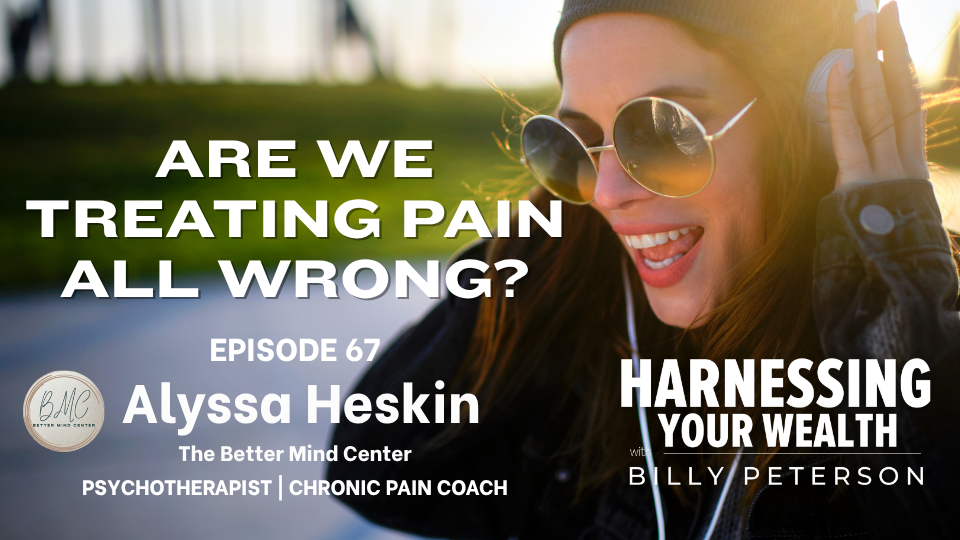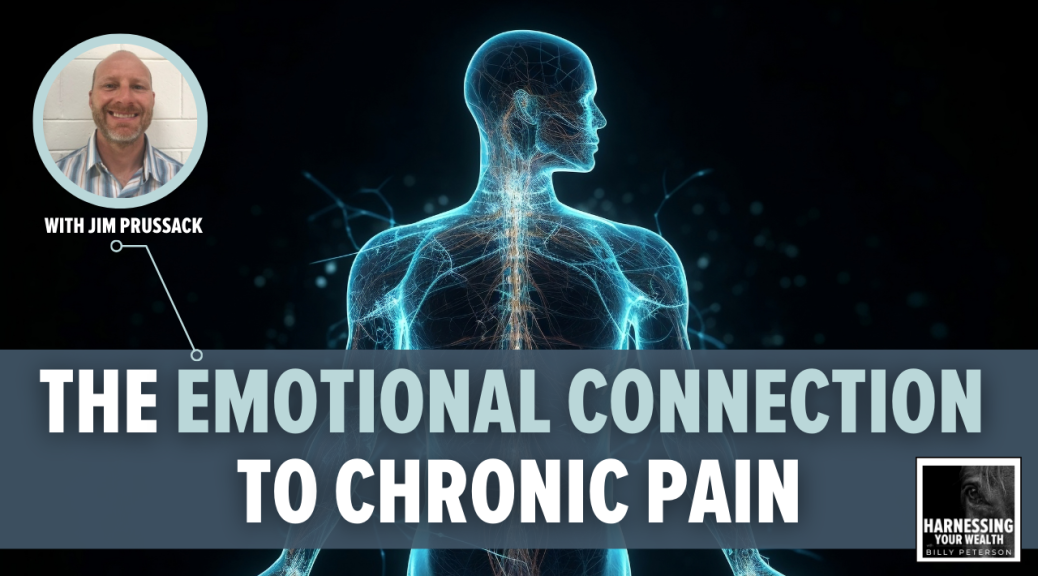
Are We Treating Pain All Wrong? (EP. 67)
What if the key to healing chronic pain isn’t found in a pill, but in the power of the mind itself? In this thought-provoking conversation, psychotherapist and pain coach, Alyssa Heskin challenges the traditional view of pain and explores the science behind the mind-body connection. She reveals how emotional experiences shape our physical symptoms—and how awareness, self-exploration, and evidence-based psychotherapy can unlock the body’s natural capacity to heal. This episode invites you to question everything you thought you knew about pain and discover a new path toward true well-being.
About Our Guest:
Alyssa believes that every client deserves a space in which they feel safe, empowered, and in control of their healing. She takes a psychodynamic, strength-focused, and mindfulness-based approach and utilizes evidence-based practices from Pain Reprocessing Therapy. Alyssa works collaboratively with clients to identify their maladaptive thinking patterns and behaviors and replace them with effective strategies to alleviate emotional and physical pain. Alyssa was first introduced to concepts of neuroplasticity and somatic healing while supporting a family member through their chronic pain recovery. This personal experience sparked an awe for the healing capacity of our brains and bodies, leading Alyssa to develop her professional niche in chronic pain recovery. Alyssa also specializes in working with survivors of trauma and people experiencing severe mental illness.
Trained in: Pain Reprocessing Therapy (PRT), Emotional Awareness and Expression Therapy (EAET), Cognitive Behavioral Therapy (CBT), Trauma-Focused CBT (TF-CBT), Exposure and Response Prevention (ERP), and Motivational Interviewing (MI).
Connect with The Better Mind Center:
Previous Episodes of Interest:
- The Mind-Body Connection with Heather Peterson of Pain Free For Good (Ep. 15)
- The Paradigm Shift in Healthcare with Brad Fanestil, MD (EP. 62)
- The Emotional Connection to Chronic Pain with Jim Prussack
Connect with Billy Peterson:
- Peterson Wealth Services: Billy Peterson
- LinkedIn: Billy Peterson
- Facebook: Peterson Wealth Services
- Instagram: Peterson Wealth Services
- YouTube: Peterson Wealth Services
- billy@petersonws.com
- 801-475-4002
Podcast: Play in new window | Download | Embed
